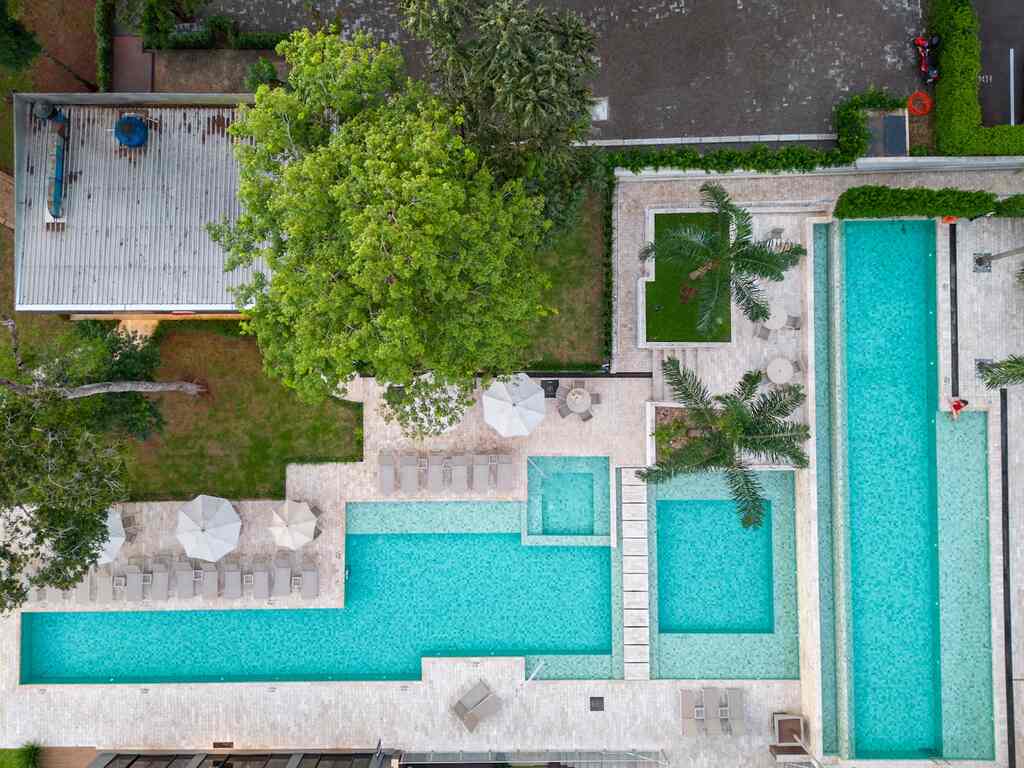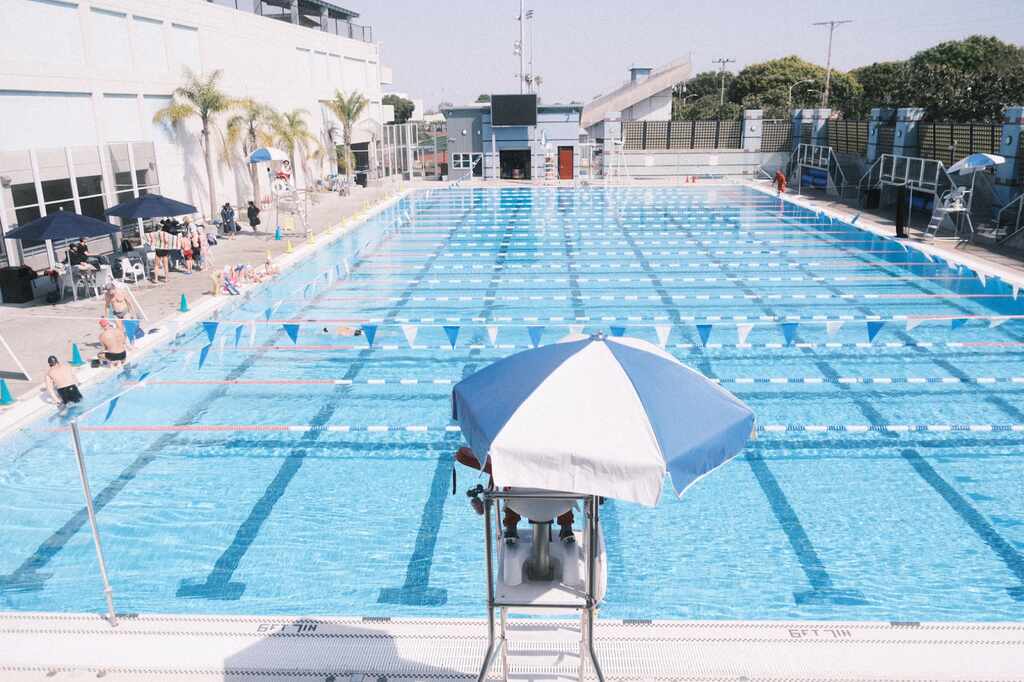Inground pools are a significant investment for homeowners, offering a space for relaxation and recreation and increasing the property’s value. Understanding how long an inground pool lasts is essential for potential buyers, as it helps plan maintenance costs and know when repairs or replacements may be necessary.
The lifespan of an inground pool largely depends on the materials used, the climate, and how well the pool is maintained over time. So, how long can you expect your inground pool to last? Let’s explore.
What is the Average Lifespan of an Inground Pool?
The average lifespan of inground pools varies depending on the type of material used to construct them. As such, for those considering inground pools in Aurora or other areas, it’s important to understand the unique climate and maintenance needs influencing pool durability. Besides, when choosing inground pools Aurora services, like those provided by Precision Landscaping or other pool installation companies, it’s essential to ensure that the installation is done to the highest standards to extend the pool’s life.
Generally, inground pools can last 20 to 30 years, but some may need repairs or updates. Concrete pools are often the most durable, lasting for several decades with proper maintenance. Vinyl liner pools tend to have a shorter lifespan since the liner typically requires replacement every 5 to 10 years. Fiberglass pools tend to fall somewhere in the middle, with an expected lifespan of more than 30 years.
5 Factors Affecting Inground Pool Lifespan
Several factors determine how long an inground pool will last. Although the pool type is important, the quality of materials, the installation process, and regular maintenance are equally critical factors.
Material Quality
The quality of the materials used in the pool’s construction is a major factor in its lifespan. High-quality concrete, fiberglass, and vinyl will endure wear and tear better than cheaper alternatives. Additionally, the quality of supporting systems, such as the plumbing and filtration, also affects the pool’s overall durability.
Professional Installation
A professionally installed pool is likely to last longer than one that has been poorly constructed. Proper installation ensures the pool is structurally sound, reducing the likelihood of leaks, cracks, or equipment malfunctions. Hiring an experienced and reputable contractor ensures the pool is built correctly.
Climate and Environmental Conditions
The climate and environment in which the pool is installed can significantly affect its lifespan. For example, pools in areas with harsh winters may experience damage from freezing and thawing cycles, especially if they are not properly winterized. Conversely, pools in extremely hot climates may suffer from sun damage or fluctuating ground levels due to drought.
Regular Maintenance
Regular maintenance of your inground pool is critical for preserving its lifespan. Proper cleaning, water balancing, and filtration maintenance can help prevent algae growth, scaling, and equipment failure. Regularly monitoring your pool for cracks, leaks, or other signs of damage and repairing them quickly can help prevent costly repairs later on.
Pool Usage
The amount of use the pool gets can also affect its lifespan. Heavily used pools may experience more wear and tear on the surface and equipment, requiring more frequent repairs and replacements. Light usage and diligent maintenance can help a pool last longer without significant damage.
Signs Your Inground Pool Needs Repairs

Every pool will require some level of repair or renovation over time. Spotting damage in its early stages lets you quickly resolve problems, preventing them from worsening and preserving the pool’s longevity.
Structural Damage
Cracks in concrete, tears in vinyl liners, or visible wear on fiberglass surfaces are all signs that repairs are necessary. Overlooking these signs can lead to bigger challenges, such as leaks or compromised structural integrity.
Equipment Malfunctions
If the pool’s pumps, filters, or heating system frequently malfunction, it may indicate aging and needs repairs or upgrades. Replacing worn-out equipment can prevent larger, more expensive issues.
Water Leaks
Leaks are one of the most common signs that a pool needs repair. If you notice that the pool is losing water at an unusual rate or there are wet areas around it, it’s important to inspect the pool for leaks.
How Can You Extend The Lifespan Of Your Pool?
While all pools have a finite lifespan, there are steps you can take to maximize the longevity of your inground pool.
- Routine Maintenance: Regularly cleaning your pool, checking water chemistry, and maintaining the filtration system are essential to extending the life of any pool. Ensure that chemicals are balanced and your pool equipment is functioning correctly.
- Seasonal Care: It’s vital to winterize your pool properly in areas with colder climates. This includes draining water from the plumbing, covering the pool, and using antifreeze in the lines to prevent damage during freezing temperatures.
- Timely Repairs: Addressing small issues early can prevent them from becoming more severe. Fix minor cracks, replace worn-out equipment, and fix any leaks as soon as they are detected to avoid further complications.
- Resurfacing and Renovating: For concrete pools, resurfacing every 10 to 15 years can significantly prolong their lifespan by addressing cracks and maintaining a smooth surface. Fiberglass and vinyl pools may also benefit from occasional renovations or liner replacements to keep them looking and functioning like new.
What Are The Cost Considerations for Inground Pools?
In evaluating the longevity of an inground pool, you must also weigh the future expenses related to upkeep, repairs, and possible replacements.
Upfront vs. Long-Term Costs
While fiberglass and vinyl liner pools may have lower upfront costs, they may require liner replacements or repairs sooner than concrete pools. However, initially more expensive, concrete pools may be more cost-effective with proper maintenance.
Replacement Costs
At some point, it may be more economical to replace the pool rather than continuously repair it. Factors like the age of the pool, the extent of damage, and the cost of ongoing maintenance should all be considered.
In Summary
Understanding the lifespan of inground pools and the factors that affect their longevity can help homeowners make informed decisions about this significant investment. By choosing the right type of pool, ensuring quality installation, and committing to regular maintenance, the life of an inground pool can be greatly extended, providing years of enjoyment and adding value to your home. A well-cared-for pool is not merely a source of enjoyment but a long-term enhancement to your property’s value.

